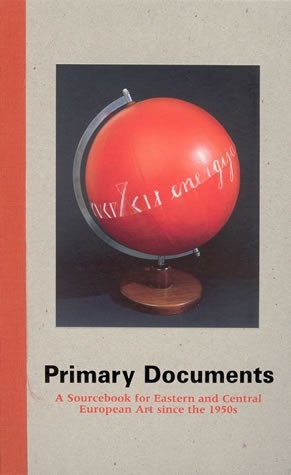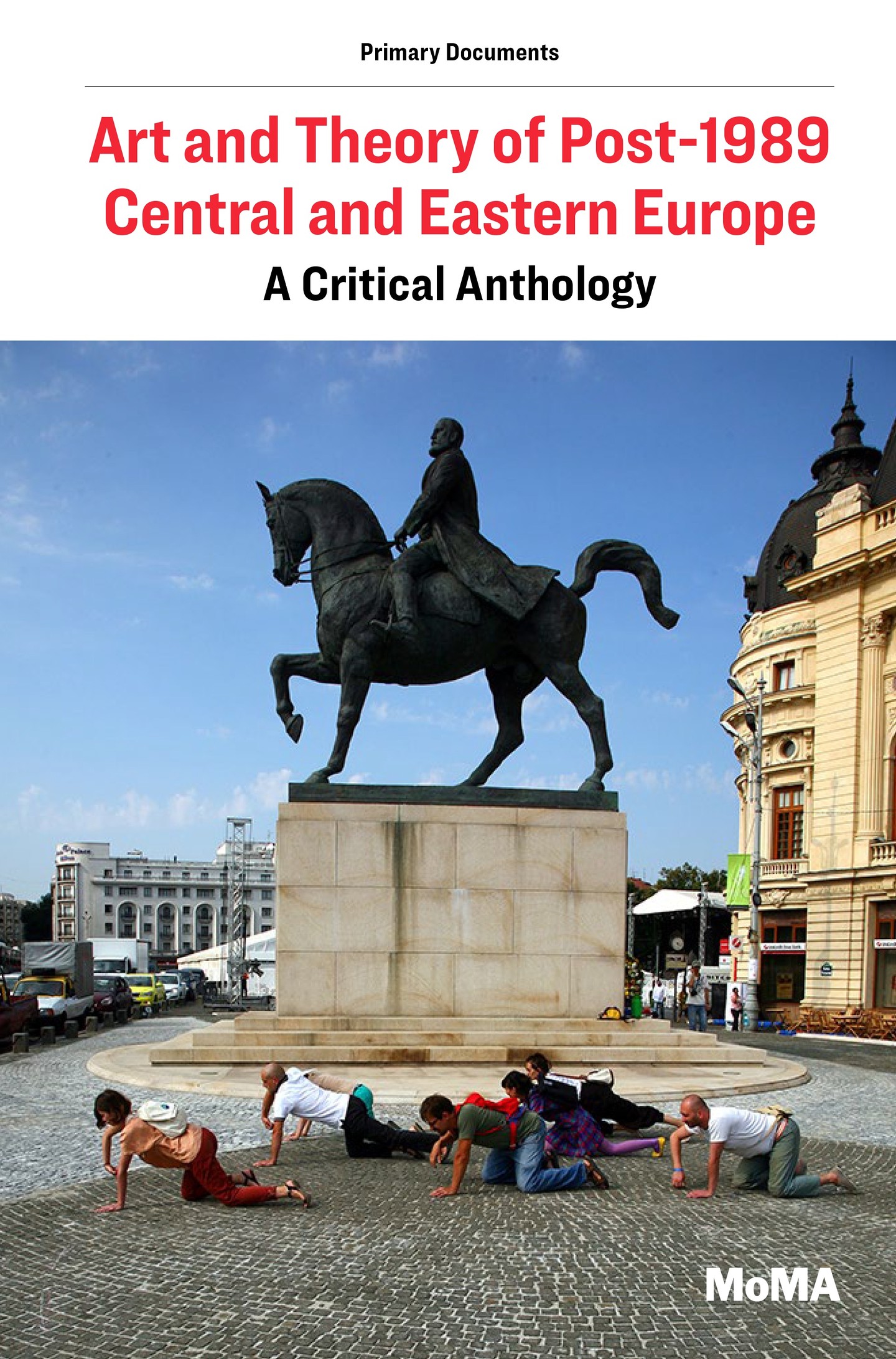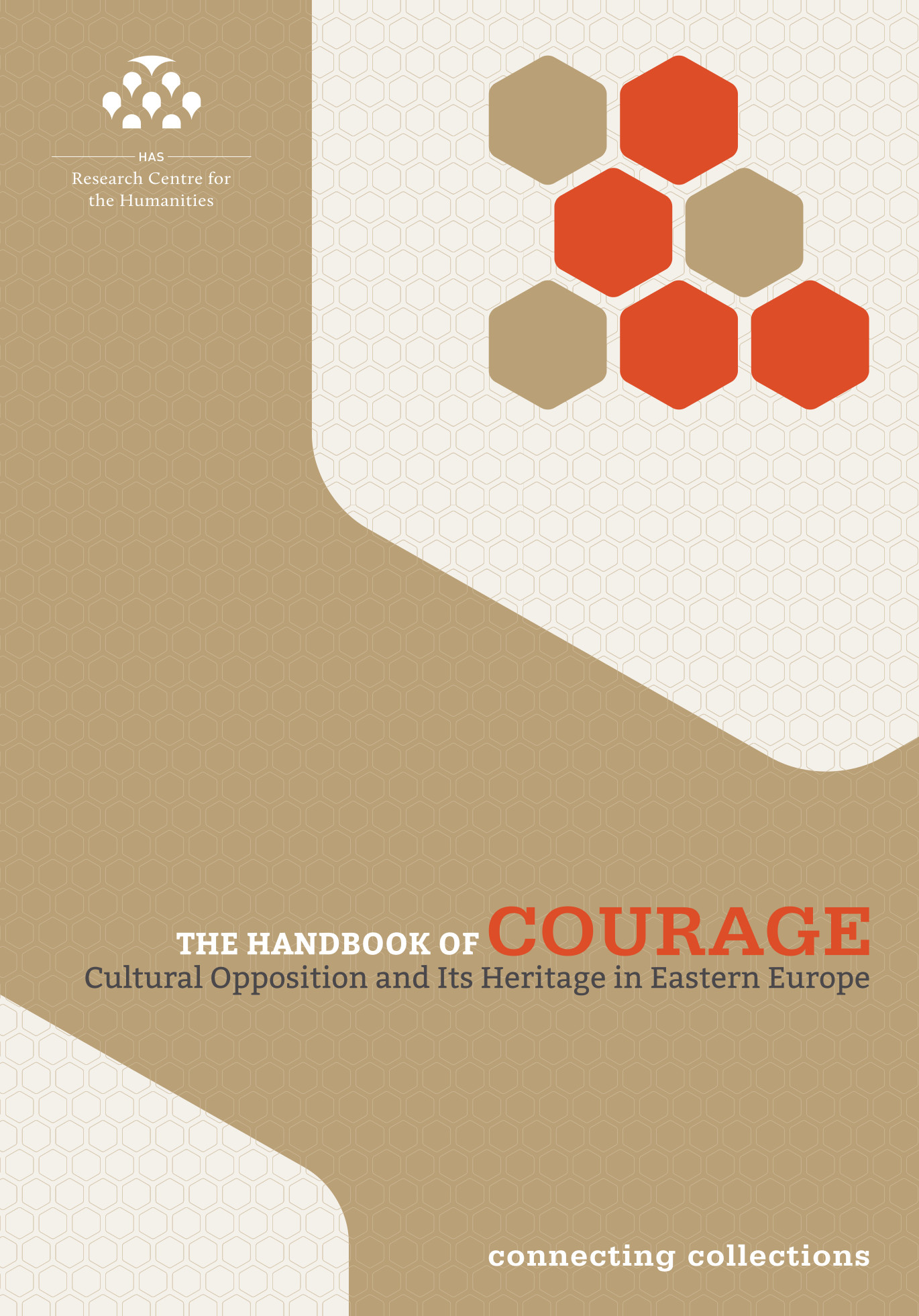Primary Documents: A Sourcebook for Eastern and Central European Art Since the 1950s (2002)
Filed under book | Tags: · art history, body art, central europe, conceptual art, east-central europe, eastern europe, neo-avant-garde, performance art, politics, socialism, southeastern europe

“For several decades after World War II, Communist governments suppressed artistic freedom in Eastern Europe, creating conditions for the development of artistic expression markedly different from those in the West. Primary Documents provides an introduction for English-speaking readers to influential figures in the artistic and critical realms of the region and includes seminal artists’ writings, manifestos and texts by art historians from the past four decades. Many of these texts originally appeared in obscure journals in various foreign languages and are translated here for the first time.
The book, resulting from the research of an international team of scholars, artists, and curators working with The Museum of Modern Art, includes texts from Bulgaria, Croatia, the Czech Republic, Estonia, Hungary, Latvia, Macedonia, Poland, Romania, Russia, Serbia, Slovakia, and Slovenia. The chapters, organized thematically, are preceded by brief introductions and followed by case studies that chronicle events or describe the creation or reception of artworks.”
Edited by Laura Hoptman and Tomáš Pospiszyl
Foreword by Ilya Kabakov
Publisher Museum of Modern Art, New York, 2002
ISBN 0870703617, 9780870703614
375 pages
via ARCH
Reviews: Martina Pachmanová (ARTMargins, 2003), Alexei Monroe (Transitions, 2003), Yevgeniy Fiks (Art Journal, 2004).
Publisher
Distributor
WorldCat
PDF (17 MB)
Comment (0)Ana Janevski, Roxana Marcoci, Ksenia Nouril (eds.): Art and Theory of Post-1989 Central and Eastern Europe: A Critical Anthology (2018)
Filed under book | Tags: · 1990s, 2000s, 2010s, archive, art history, central europe, democracy, east-central europe, eastern europe, globalisation, southeastern europe, transition

“The fall of the Berlin Wall and the ripple effects felt over the following years from Bucharest to Prague to Moscow demarcate a significant moment when artists were able to publicly reassess their histories and question the opposition between the former East and the former West. Art and Theory of Post-1989 Central and Eastern Europe takes the pivotal political changes between 1989 and 1991 as its departure point to reflect on the effects that communism’s disintegration across Central and Eastern Europe—including the Soviet Union’s fifteen republics—had on the art practices, criticism, and cultural production of the following decades.
This book presents a selection of the period’s key voices that have introduced recent critical perspectives. Particular attention is given to the research and viewpoints of a new generation of artists, scholars, and curators who have advanced fresh critical perspectives and who are rewriting their own histories. Their examination of artistic practices and systems of cultural production proposes distinct outlooks for acting in the contemporary world while simultaneously rethinking the significance of the socialist legacy on art today.”
Contributors: Branislava Andjelkovic, Edit András, Inke Arns, Marius Babias, Zdenka Badovinac, Ivana Bago, Zbynek Baladrán, Claire Bishop, Luchezar Boyadjiev, Andreas Broeckmann, Boris Buden, Ilya Budraitskis, Ondrej Chrobák, Keti Chukhrov, Kim Conaty, Cosmin Costinas, Eda Cufer, Bojana Cvejic, Ekaterina Degot, Branislav Dimitrijevic, Michelle Elligott, Octavian Esanu, Yevgeniy Fiks, Meghan Forbes, Maja Fowkes, Reuben Fowkes, Boris Groys, Daniel Grún, Marina Gržinic, Vít Havránek, Jon Hendricks, IRWIN (Miran Mohar, Andrej Savski, Roman Uranjek, and Borut Vogelnik), Sanja Ivekovic, Ana Janevski, David Joselit, Tímea Junghaus, Klara Kemp-Welch, Juliet Kinchin, Zofia Kulik, Andres Kurg, Katalin Ladik, Václav Magid, Eva Majewska, David Maljkovic, Roxana Marcoci, Lina Michelkevice, Aldo Milohnic, Viktor Misiano, Rastko Mocnik, Magdalena Moskalewicz, Deimantas Narkevicius, Ksenia Nouril, Ewa Opalka, Martina Pachmanová, Bojana Pejic, Dan Perjovschi, Nataša Petrešin-Bachelez, Piotr Piotrowski, Bojana Piškur, David Platzker, Paulina Pobocha, Tomáš Pospiszyl, Lýdia Pribišová, Oleksiy Radynski, Karol Radziszewski, Christian Rattemeyer, Cristina Ricupero, Georg Schöllhammer, David Senior, Alina ?erban, Slavs and Tatars, Sven Spieker, Tamas St.Auby, Zuzana Štefková, Jakub Stejskal, Mladen Stilinovic, subREAL, Tomás Svoboda, Ovidiu Ṯichindeleanu, Margarita Tupitsyn, Gediminas Urbonas, Nomeda Urbonas, Jonas Valatkevicius, Jelena Vesic, Dmitry Vilensky, Raluca Voinea, What, How & for Whom (Ivet Curlin, Ana Devic, Nataša Ilic, and Sabina Sabolovic), Igor Zabel, Artur Zmijewski.
Publisher Museum of Modern Art, New York, 2018
Primary Documents series
ISBN 9781633450646, 1633450643
408 pages
Reviews: Vesna Vuković (Zivot umjetnosti, 2018), Denisa Tomkova (H-Net, 2019), Milena Tomic (Slavonic and East European Review, 2019), Joanna Mardal (Junctions, 2019), Anežka Bartlová (Art & Antiques, 2019, CZ).
PDF (14 MB, updated on 2022-5-4)
Comment (0)The Handbook of Courage: Cultural Opposition and its Heritage in Eastern Europe (2018)
Filed under book | Tags: · activism, censorship, central europe, culture, dissent, east-central europe, eastern europe, politics, protest, southeastern europe, surveillance, underground

“The Courage Handbook ushers its reader into the world of the compellingly rich heritage of cultural opposition in Eastern Europe. It is intended primarily to further a subtle understanding of the complex and multifaceted nature of cultural opposition and its legacy from the perspective of the various collections held in public institutions or by private individuals across the region.
Through its focus on material heritage, the handbook provides new perspectives on the history of dissent and cultural non-conformism in the former socialist countries of Central, Eastern, and South-eastern Europe.
The volume is comprised of contributions by over 60 authors from a range of different academic and national backgrounds who share their insights into the topic. It offers focused discussions from comparative and transnational perspectives of the key themes and prevailing forms of opposition in the region, including non-conformist art, youth sub-cultures, intellectual dissent, religious groups, underground rock, avantgarde theater, exile, traditionalism, ethnic revivalism, censorship, and surveillance.”
Edited by Balázs Apor, Péter Apor and Sándor Horváth
Publisher Institute of History, Research Centre for the Humanities, Hungarian Academy of Sciences, Budapest, 2018
ISBN 9789634161424, 9634161421
634 pages
Project website
Publisher
WorldCat

